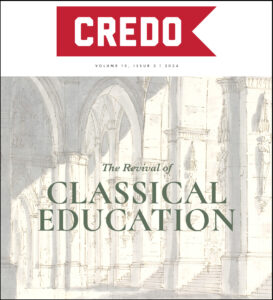Potestās (“Power”)
If I could be a superhero, my superpower of choice would be super easy to make: the ability to speak Latin.
Instead of yelling “blap!” when an arrow darts past my face or “pow!” when struck in my washboard abs, I’d school my rivals in the language of Augustus.
When trouble would appear out of thin air, I’d proclaim: Ubinam?—“where on earth?” And when my rival would seemingly die but then return to life, I’d utter: Dii boni!—“for heaven’s sake!”
Vērē (“Truly”)
It might seem stultus, “silly” why anyone would wish for such a power, but who wouldn’t want to know Latin?
Curious about flowers, plants, and animals? Latin classified all the inhabitants of the earth—from genus to species.
Entering law? Latin cracked the code—ensuring you don’t confuse an affidavit with a subpoena.
Signing a contract? Latin protects your John Hancock—guaranteeing there is consensus with no caveat.
Trying to impress friends at a dinner party? Latin makes you smart—proffering one-liners like in vino veritas and, for extra drama, O tempora, o mores!
Wrestling with deep philosophical questions? Latin dispenses fortune-cookie-like wisdom—from cogito ergo sum to carpe diem.
Studying anatomy? Latin put it on the map—helping you distinguish a femur from a vertebra.
Practicing medicine? Latin offers a cheat sheet—teaching a doctor how to subscribe pills per diem and per os.
Uttering a prayer? Latin sanctifies your words—from the Ave Maria to the Paternoster.
Checking the time? Latin keeps your hours straight—from ante meridiem (a.m.) to post meridiem (p.m.).
Planning a meeting? Latin dictates the flow—from implementing an agenda to taking notes verbatim.
Preparing for a debate? Latin strengthens your arguments—from a fortiori to non sequitur.
Going to school? Latin invented it—helping you become summa cum laude at your alma mater.
Knocking on death’s door? Latin preserves your body and soul—helping you requiescat in pace post mortem. Latin lends itself to the sacred. To speak it, especially in the halls of the academy or the nave of the cathedral, is to step on hallowed ground. Share on X
Theologia (“Theology”)
Of course, you know I could continue ad nauseam, but tempus fugit, and everything has a terminus. So, let’s focus on theology.
And it’s impossible to focus on theology without adequately considering the language out of which it was forged. To be sure, there are two linguistic pillars on which Christian theology stands—Greek and Latin—with both enjoying a venerable tradition. But given the role geography played in bifurcating the early Christian community, where Latin became the lingua franca in the West just as Greek did in the East, it only makes sense that Latin would be the locus of study among Christians in the Western hemisphere.
Locus Sacer (“Sacred Space”)
When Martin Luther prepared his defense against indulgences in 1517, he knew the selling of them had been part of the sacrum negotium, “sacred business,”[1] of the medieval Church for centuries. But he had no idea he was opening Pandora’s box.
Latin is not simply a theological subject to be studied but a sacred space to be inhabited. It is, in fact, a mysterious gateway through which we are transported into another realm. And in that realm abide the sharpest minds and saintliest hearts of the church universal. Latin lends itself to the sacred. To speak it, especially in the halls of the academy or the nave of the cathedral, is to step on hallowed ground. It’s the equivalent of Batman donning his Batsuit before fighting crime in Gotham City.
Humilitās (“Humility”)
When Saint Benedict wrote about the twelve humilitatis gradus, “steps of humility,”[2] he concluded that the final step was attained when a monk demonstrated humility in his heart in all his actions. In the Christian tradition, there is something intrinsically uplifting about making ourselves humilis, “low” to the earth.
The study of Latin cultivates this kind of humility and reverence. In grappling with a language that is no longer spoken conversationally, students are reminded of their modest status within the grand narrative of Christian history. Latin humbles the intellect, reminding us that wisdom is not confined to the present moment but is an inheritance passed down through the ages. Latin humbles the intellect, reminding us that wisdom is not confined to the present moment but is an inheritance passed down through the ages. Share on X As students immerse themselves in the study of Latin, they are invited into a dialogue with the greatest minds of the past, humbly listening to and learning from voices that have shaped the course of theological thought century after century.
Before Descartes concluded Cogito, ergo sum, “I think, therefore I am,”[3] Anselm pondered Credo ut intelligam, “I believe so I may understand.”[4]
Lingua Ecclesiae (“Language of the Church”)
When Cyprian of Carthage proclaimed in the middle of the 200s AD that you cannot have “Church as Mother without God as Father,”[5] he had a point.
Latin, often referred to as the language of the Church, serves as the conduit through which centuries of theological thought have been transmitted. In fact, it is no wonder that the very word summarizing the Christian faith—“creed”—comes directly from the Latin credo, “I believe,” out of which multiple historic Christian creeds arose.
From the creeds of the apostles’ disciples to the homilies of Augustine to the encyclicals of popes to the summas of Thomas Aquinas to the commentaries of Martin Luther, Latin has served as the vessel of sacred wisdom, carrying the weight of theological discourse from one generation to the other for millennia. As seminarians—students of theology and sojourners in the Church—our journey is intrinsically tied to this rich tapestry of tradition. To neglect Latin is to sever ourselves from our own heritage.
Even worse, it is to turn a blind eye to heresy, given that most foundational Christian discourse was written in Latin, meaning that misunderstandings and mistranslations of Latin terms invite heresy. It is for this reason that Melanchthon wrote: “Many heresies are the result of ignorance of languages.”[6]
Who would Superman be without knowing his true home was Krypton? What would the Church be without recognizing its mother tongue is Latin?
Biblia (“Bible”)
When Johannes Gutenberg published the first printed Bible in 1455, he naturally did so using the Latin Vulgate. And, of course, why would he not? Feast on this: The Latin language has been the primary evangelist of God’s Word for the vast majority of the Church’s history.
Even before Pope Damasus hired Jerome to publish a standard Latin Bible in the year 382, the Vetus Latina, or “Old Latin” Bible, had been in existence for centuries. And, no, the Latin Bible did not disappear the day, or the month, or the year—or even the century—after Martin Luther nailed the Ninety-Five Theses on the Wittenberg Church door—which he, of course, wrote in Latin rather than his native German.
In fact, the Bible continued to be printed in Latin for centuries to come—with all of the Protestant Reformers and many subsequent theologians in the decades that followed—first learning the Bible not through their native tongues but through the auspices of the Latin language.
Brevitās et Facilitās (“Brevity and Ease”)
When John Calvin contemplated the art and science of reading the Bible in the middle of the sixteenth century, he advocated a position that centered on clarity, correctness, and conciseness. It is little wonder that he excelled in the Latin language, given that it offered an elegance and exactness unrivaled by the vernacular.
Beyond its historical significance, Latin possesses a unique linguistic precision that fosters clarity and depth of understanding in theological study. In a field where nuances of meaning can have profound theological implications, Latin provides a precise vocabulary to articulate complex concepts with accuracy and eloquence. Through the study of Latin, students cultivate a disciplined approach to theological inquiry, honing their ability to engage with canonical texts and theological treatises with acuity and precision.
Long before Twitter, now known as X, required tweets to be no more than 280 characters, Latin could be written and spoken in a third of the words other languages would require. Long before Twitter, now known as X, required tweets to be no more than 280 characters, Latin could be written and spoken in a third of the words other languages would require. Share on X
Pōns ad Scientiam (“Bridge to Knowledge”)
When Isaac Newton wrote his ground-breaking book on calculus in 1687, Principia Mathematica, he ignored his native tongue of English and composed the whole treatise in the language of Caesar.
Latin serves as a bridge to the broader intellectual tradition of Western civilization. While a vast chasm today separates religion and science, fides et ratio, “faith and reason,” were united when Latin was the language of discourse. We tend to think that only theological writings were written in Latin, but the truth is that all works in the West for a thousand years were recorded in this language—science, mathematics, economics, and everything in between.
Whether Nicolas Copernicus’s De Revolutionibus (1543), Francis Bacon’s Novum Organum Scientiarum (1620), or Baruch Spinoza’s Ethica (1677), all serious students of the sciences in the Early Modern period understood that if they wanted their ideas to be read and engaged, they would have to bypass their native languages and publish in Latin.
Ad Fontēs (“To the Sources”)
When Erasmus of Rotterdam considered why and how we should study the ancients in the early 1500s, he wrote that we must, first of all, hasten to return ad fontes.[7]
Why do seminary students study Biblical Greek and Biblical Hebrew when there are literally hundreds of professional Bible translations in English, all of which surpass what a single student could ever produce? In nuce, “in a nutshell,” it’s because, on the one hand, learning the mechanics of how a language works—even when much of the vocabulary will soon be forgotten—surpasses rote memorization or simple recognition of the “actual” answers; and, on the other, translations pale in comparison to the real deal.
No offense to modern translations but reading them is like drinking refrigerated and processed orange juice from a carton in comparison to reading God’s word in the original language, which is the equivalent of savoring freshly hand-squeezed orange juice from a cluster of oranges newly plucked from a Valencia Orange Tree in the height of the harvest.
The same is true for the hundreds of thousands of theological writings originally written in Latin but only read by students in translation. Having translated multiple Latin writings into professional English translations, I know translators do their best, but none of us can wholly convey the feistiness of Tertullian, the rusticity of Patrick, the piety of Kempis, the erudition of Erasmus, the precision of Calvin, or the simplicity of Wesley.
Bonae Litterae (“Good Letters/Literature”)
When Philip Melanchthon gave his inaugural address as the first professor of Greek at Wittenberg University in 1518, he presented a bold vision for a classical Christian education, rich in original sources and free from superstition. It would be this same gravitas that would lead him a few years later to pen the first Protestant systematic theology book.
Melanchthon was a masterful Latinist who taught us that what we write can—and, therefore, should—contain as many beautiful words as it does beautiful morals. A true Renaissance man, he published writings on countless topics—from commentaries to grammars to sermons to tractates. This is the essence of bonae litterae, a hallmark of Protestant Reformers. It is the sentiment that goads us ad astra, “toward the stars,” while also keeping us grounded in terra, “on earth.”
Every time a preacher or teacher aims to speak both in style and in faith, bonae litterae are produced. Well before Marshall McLuhan coined the phrase, “The medium is the message,” Latin authors within Christianity had been arguing for centuries that the message of hope must be appropriately calibrated with the medium of print.
Conclūsiō (“Conclusion”)
The study of Latin is not a mere academic exercise but a sacred duty. By mastering Latin, seminary students gain access not only to theological treasures but also to the broader corpus of Western intellectual history. In this way, it is a means of preserving our theological heritage, fostering intellectual rigor, fueling our imaginations, inspiring beauty, and cultivating humility in the pursuit of sapientia vera, “true wisdom.” As we navigate the complexities of modern theological discourse, especially our culture’s obsession with immediacy, convenience, and newness, let us not forsake the language that has served as the vessel of our faith for three times as long as the English language has been used in worship. Let us embrace Latin as a vital tool in our journey toward deeper communion with God, for in the echoes of this ancient tongue, we discover the timeless truths that unite us across the ages.
If Ludwig Wittgenstein is correct that “The limits of my language mean the limits of my world,”[8] one’s ignorance of Latin means it’s a small world after all.
(P.S.) Post Scrīptum (“Afterthought”)
I could have written this whole thing in Latin—if only…. And then we both could have had superpowers.
Notes:
[1] Timothy J. Wengert, The Annotated Luther, vol. 1, The Roots of Reform (Minneapolis, MN: Fortress Press, 2015), 17.
[2] Benedict of Nursia, Regula (Patrologia Latina 66.407).
[3] René Descartes, Principia Philosophiae 1.7 (Amsterdam: Daniel Elsiver, 1677), 2.
[4] Anselm of Canterbury, Proslogion (Patrologia Latina 158.227).
[5] Cyprian of Carthage, De Unitate Ecclesiae 6 (Patrologia Latina 4.503).
[6] Philip Melanchthon, De Studio Linguarum (Corpus Reformatorum 11: 232-233).
[7] Erasmus of Rotterdam, De Ratione Studii ac Legendi Interpretandique Auctoris (Paris, 1511, n.p.).
[8] Ludwig Wittgenstein, Tractatus Logico-Philosophicus 5.6 (London: Kegan Paul, Trench, Trubner, & Co., Ltd., 1922), 74. The original German is as follows: Die Grenzen meiner Sprache bedeuten die Grenzen meiner Welt.
Photo Credit: Arti Kh



